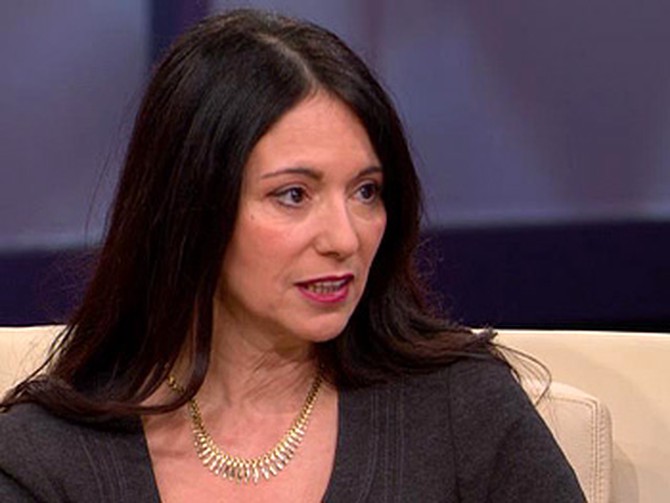Breast Cancer Battles
Christina's oncologist, Dr. Philomena McAndrew, an attending physician at Cedars-Sinai Medical Center in Los Angeles. Dr. McAndrew explains the role that the BRCA1 and BRCA2 genes play in breast cancer.
The BRCA genes are genes that ordinarily help prevent breast and ovarian cancers. When someone tests positive for a BRCA gene mutation, it means there is a slight change in her BRCA gene that inhibits it from carrying out its job of prevention.
If you happen to have a gene mutation, your chances of developing breast cancer are significantly greater. But that does not mean you will definitely develop the disease. "In people that have the BRCA gene mutation, the chance [in their] lifetime of getting breast cancer is up to 87 percent," Dr. McAndrew says.
A simple blood test can determine if you carry a BRCA gene mutation. Dr. McAndrew recommends getting tested if you:
The BRCA genes are genes that ordinarily help prevent breast and ovarian cancers. When someone tests positive for a BRCA gene mutation, it means there is a slight change in her BRCA gene that inhibits it from carrying out its job of prevention.
If you happen to have a gene mutation, your chances of developing breast cancer are significantly greater. But that does not mean you will definitely develop the disease. "In people that have the BRCA gene mutation, the chance [in their] lifetime of getting breast cancer is up to 87 percent," Dr. McAndrew says.
A simple blood test can determine if you carry a BRCA gene mutation. Dr. McAndrew recommends getting tested if you:
- Were diagnosed with breast cancer before you turned 50
- Had ovarian cancer
- Had a male family member with breast cancer
- Had breast cancer in one breast and then again in the other breast
- Have lost family members to breast cancer before they turned 50
- Practice surveillance—have a mammogram and MRI every six months
- Preventative chemotherapy
- Preventative double mastectomy
Published 09/30/2008
As a reminder, always consult your doctor for medical advice and treatment before starting any program.


